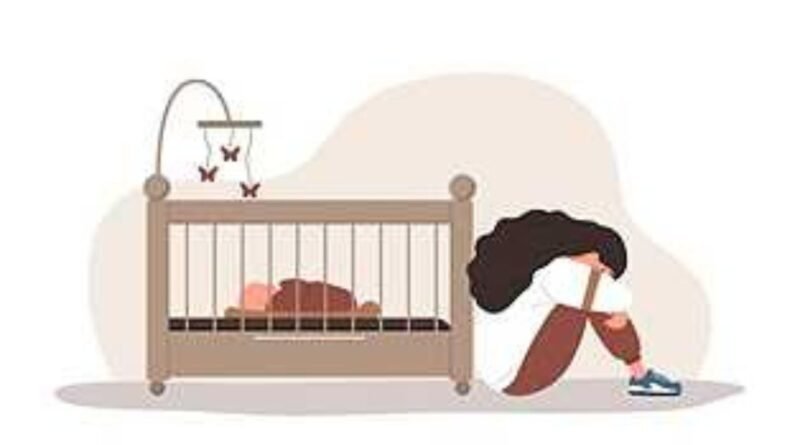Postpartum Depression: Understanding and Overcoming the Silent Struggle
Motherhood is often celebrated as a joyful milestone, but the emotional journey into parenthood is far more complex than it appears. Many women experience highs and lows during the postpartum period. While some emotional fluctuations are natural, persistent sadness or emotional numbness may indicate something more serious—Postpartum Depression (PPD). Unlike the brief and mild “baby blues,” PPD is a profound mental health condition that can severely impact a mother’s well-being, relationships, and ability to care for her child.
Understanding Postpartum Depression
Postpartum Depression is a subtype of major depressive disorder that develops after childbirth, most commonly within the first three months, but it can also arise anytime within the first year postpartum. PPD affects not only emotional health but also cognitive, physical, and interpersonal functioning.
Common Symptoms Include:
- Persistent feelings of sadness, emptiness, or despair
- Excessive crying without a clear reason
- Withdrawal from family, friends, and the baby
- Intense irritability or anger
- Feelings of inadequacy, guilt, or worthlessness
- Changes in appetite or significant weight fluctuation
- Insomnia or excessive sleeping
- Having trouble bonding with the baby or feeling emotionally detached
- Fatigue or loss of motivation
- Anxiety and panic attacks
- Thoughts of hurting oneself or, in extreme situations, the unborn child
These symptoms often disrupt daily routines and can have a long-term impact on the mother’s ability to parent effectively and engage in meaningful relationships.
Contributing Factors and Risk Elements
- Hormonal Fluctuations: Following childbirth, levels of progesterone and oestrogen rapidly drop, which can lead to mood swings.
- Genetic Vulnerability: A personal or family history of depression or other mental illnesses increases susceptibility.
- Psychosocial Stressors: Financial instability, lack of social support, or relationship difficulties heighten emotional strain.
- Perinatal Complications: Traumatic birth experiences, unplanned cesarean deliveries, or NICU admissions can intensify feelings of helplessness and fear.
- Sleep Deprivation: New mothers often face chronic sleep disruption, which impairs emotional resilience.
- Identity Shift: Adjusting to the role of motherhood and loss of independence can trigger emotional turmoil.
Postpartum Depression Beyond Mothers
Notably, males and non-birthing partners can also be impacted by PPD. While less common, paternal postpartum depression is a growing concern. New responsibilities, lack of sleep, changes in the partner relationship, and feelings of exclusion from the caregiving role may contribute to depressive symptoms. Inclusive mental health strategies must consider the emotional health of all caregivers involved.
Pathways to Healing: Treatment and Support
PPD is a treatable condition. Early intervention significantly improves outcomes for both the mother and the child. A comprehensive treatment plan typically includes:
Psychotherapy
- Cognitive Behavioral Therapy (CBT): Focuses on identifying irrational beliefs and replacing them with balanced, healthy thoughts.
- Interpersonal Therapy (IPT): Helps women manage changes in interpersonal relationships, role transitions, and social support.
Pharmacological Treatment
- When symptoms range from moderate to severe, selective serotonin reuptake inhibitors (SSRIs) are commonly prescribed as a treatment option.
Peer Support and Community Resources
- Getting involved in a support group helps people feel less alone and more like they belong. Hearing others’ stories fosters validation and hope.
Self-Care and Lifestyle Adjustments
- Emphasizing rest, hydration, nutritious eating, and regular gentle physical activity can boost emotional resilience.
- Practices such as yoga, meditation, and journaling aid in emotional processing and reduce stress.
Family Education and Involvement
- Educating partners and family members fosters empathy and enables them to provide practical and emotional support effectively.
Professional Support: Insights from Dr. R. K. Suri at Psychowellness Center
Dr. R.K. Suri, a senior clinical psychologist at Psychowellness Center, provides comprehensive care for women navigating postpartum challenges. His approach includes:
- In-depth psychological evaluations tailored to each mother’s unique background.
- Individualized therapy plans integrating evidence-based approaches like CBT, mindfulness, and trauma-focused care.
- Counseling sessions that include family members promoting shared understanding and cooperative caregiving.
- Guidance on managing expectations and developing emotional regulation skills.
Dr. Suri emphasizes a safe and empathetic therapeutic environment where mothers feel seen, heard, and supported throughout their recovery journey.
Digital Therapy Options: TalktoAngel’s Specialized Services
TalktoAngel is a digital mental health platform offering specialized services for postpartum mental health. Their key offerings include:
- Access to licensed therapists trained in maternal mental health.
Therapeutic resources include mood trackers, relaxation techniques, and guided journaling. - Private online sessions that fit a new mother’s hectic schedule.
- Customized interventions for postpartum anxiety, depression, and attachment difficulties.
By removing geographical and logistical barriers, TalktoAngel ensures that mental health support is just a click away, even for mothers in remote or underserved communities.
Knowing the Red Flags to Know When to Get Help
Timely intervention is critical. Professional help should be sought when:
- After more than two weeks, symptoms start to interfere with day-to-day activities.
- The mother struggles to connect emotionally with her baby.
Persistent feelings of despondency, anger, or anxiousness are present. - Thoughts of self-harm or harming the baby emerge.
It is not a show of weakness to reach out; rather, it is a necessary first step on the path to empowerment and healing.
Conclusion
Postpartum Depression is a real and serious condition that affects millions of women and their families. By fostering open conversations, reducing stigma, and enhancing access to care, society can create a more compassionate and responsive environment for new mothers.
With compassionate professionals like Dr. R. K. Suri and accessible platforms like TalktoAngel, recovery becomes a shared, supported journey. Every mother deserves to feel emotionally secure and supported—not just for her own well-being but for the future of her family. Let’s ensure that no mother feels alone in her struggle. Mental healing, well-being, and support are achievable. Recovery is possible mental health is achievable, and assistance is available.
References
- American Psychiatric Association. (2022). What is Postpartum Depression? https://www.psychiatry.org/patients-families/postpartum-depression
- Mayo Clinic. (2023). Postpartum Depression. https://www.mayoclinic.org/diseases-conditions/postpartum-depression/symptoms-causes
- Centers for Disease Control and Prevention (CDC). (2022). Depression Among Women. https://www.cdc.gov/reproductivehealth/depression/index.htm
- National Institute of Mental Health. (2023). Perinatal Depression. https://www.nimh.nih.gov/health/publications/perinatal-depression
- Office on Women’s Health (U.S. Department of Health & Human Services). (2022). Postpartum Depression. https://www.womenshealth.gov/mental-health/mental-health-conditions/postpartum-depression
- Dennis, C. L., & Dowswell, T. (2013). Psychosocial and psychological interventions for preventing postpartum depression. Cochrane Database of Systematic Reviews.
- O’Hara, M. W., & McCabe, J. E. (2013). Postpartum depression: current status and future directions. Annual Review of Clinical Psychology, 9, 379-407.
- Slomian, J., Honvo, G., Emonts, P., Reginster, J. Y., & Bruyère, O. (2019). Consequences of maternal postpartum depression: A systematic review of maternal and infant outcomes. Women’s Health, 15.




